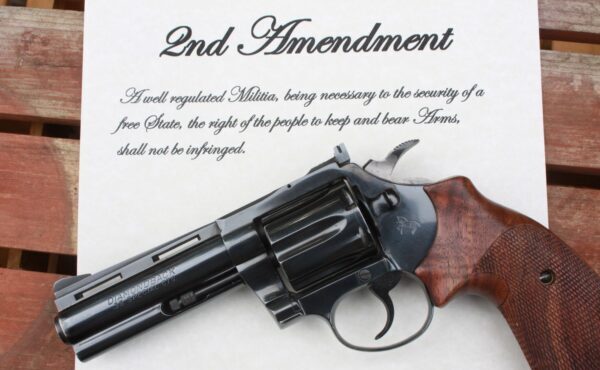
By Dave Workman
Editor-in-Chief
Opinion
Washington Post owner Jeff Bezos dropped a bomb on the newspaper’s readers with an Op-Ed explaining his newspaper’s decision against endorsing a presidential candidate, which has enraged many readers—evidently mostly far left Democrats—and exposed one of the biggest problems for the media today: Lost credibility.
Bezos’ Op-Ed is a 909-word indictment of the liberal media, which—naturally—liberal journalists stubbornly refuse to acknowledge.
“In the annual public surveys about trust and reputation,” Bezos writes in his lead paragraph, “journalists and the media have regularly fallen near the very bottom, often just above Congress. But in this year’s Gallup poll, we have managed to fall below Congress. Our profession is now the least trusted of all. Something we are doing is clearly not working.”
The only real thing the news media ever had going for it was credibility; a bond of trust between journalists and their readers and/or viewers and listeners. Without it, newspapers lose readers and circulation, and broadcast news loses viewers and listeners, and ratings.
Ratings and circulation help produce advertising revenue, which provides operating capital and salaries for the journalists. The greater the audience, the more newspapers and broadcasters can charge for advertising. It’s a basic business model.
So, what has gone wrong? As Bezos explains, “We must be accurate, and we must be believed to be accurate. It’s a bitter pill to swallow, but we are failing on the second requirement. Most people believe the media is biased. Anyone who doesn’t see this is paying scant attention to reality, and those who fight reality lose…We must work harder to control what we can control to increase our credibility.”
The WaPo’s dilemma, like other liberal newspapers—and to suggest the Post isn’t liberal would be delusional—is that they have continued to tilt increasingly left of center to the point they have ceased being “watchdogs” on government but lapdogs for Democrats. Consistently taking editorial stands against anything remotely moderate or conservative has created more than just an impression among conservative readers the news and editorial departments are one and the same.
For at least the past half-century, newspapers, including the Post, New York Times and other major publications all seem to have one thing in common their editorial boards evidently haven’t figured out: Nobody is going to pay for a publication which routinely advocates against their beliefs, lifestyles and, most importantly, their constitutional rights.
Which brings us around to the Second Amendment. It’s right there in the Bill of Rights, just below the First, but equally important and of equal stature.
- When was the last time the Washington Post, or the New York Times, or even the Seattle Times published an editorial throwing the weight and reputation of the newspaper behind the individual right to keep and bear arms?
- When was the last time any of these, or other major newspapers, unabashedly told the legislature or the governor, or the Congress to keep their greasy paws off the rights of law-abiding gun owners?
- When was the last time any newspaper endorsed the right of armed self-defense, and recognized (they couldn’t be expected to celebrate) heroic actions by armed citizens who have saved lives through intervention? They’ve had several opportunities.
- When was the last time a newspaper unconditionally supported the right of citizens to be armed, period?
Claiming to “support the Second Amendment” in one paragraph and then calling for a ban on so-called “assault weapons” in the next, or endorsing waiting periods or one-gun-a-month restrictions or other deceptively-described “gun safety” measures is the zenith of hypocrisy.
Editors and opinion columnists will reflexively argue that guns need to be carefully regulated, and they can be dangerous, and are used by criminals to commit crimes.
They simply refuse to understand this conversation isn’t about guns. It’s about rights.
Instead of reflexively endorsing bans on certain rifles, why haven’t any newspapers raised this issue:
Rifles of any kind are annually used in a fraction of all U.S. homicides, according to FBI crime data from any given year. So, why is there such a push to ban the private ownership of such firearms?
Where is the evidence that a waiting period has prevented a single mass shooting? (There is ample anecdotal evidence they haven’t.)
Where is the proof that any gun restriction has prevented an armed robbery or drive-by shooting, typically committed by someone who is already legally prohibited from owning a firearm?
WaPo reader reactions to the Bezos Op-Ed are almost universally negative, which reveals more about their collective one-sided world view than they might have wanted. The remarks also illustrate the massive cultural chasm (it is no longer just a “divide”) existing in the U.S. today.
Newspapers, and broadcast media, used to be the fourth pillar of democracy and the greater Republic. They can regain that position of responsibility and trust, but not until their editorial boards and even their boots-on-the-ground reporters understand it’s bad policy to demonize the beliefs and fundamental rights of maybe 30-40 percent of their potential audience.
If Bezos wants to rebuild public trust in his newspaper, the WaPo must earn it.



